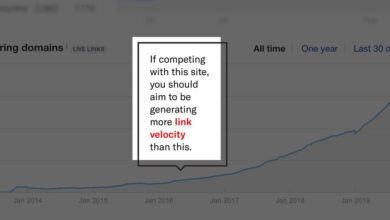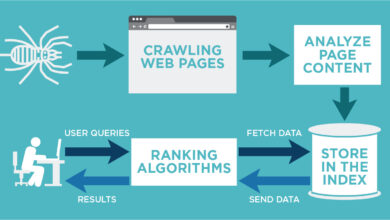
Use Question Answer Schema Markup for WordPress
Use question answer schema markup to boost your WordPress site’s . This comprehensive guide walks you through implementing this powerful technique, from understanding its fundamentals to advanced use cases and troubleshooting common errors. Learn how to structure your content to answer user queries effectively, increasing both search engine visibility and user engagement.
Schema markup, a structured data format, helps search engines better understand the content on your website. By using schema markup for questions and answers, you can improve your site’s visibility in search results, as search engines can now easily identify and display the answers to frequently asked questions.
Introduction to Schema Markup: Use Question Answer Schema Markup
Schema markup is a standardized vocabulary of tags that help search engines better understand the content of a webpage. Developed by schema.org, a collaborative effort of Google, Bing, Yandex, and other search engines, this vocabulary allows webmasters to clearly communicate the meaning of information on their websites to search engines. This leads to improved search results and a better user experience.By using schema markup, websites can provide search engines with a structured description of their content, going beyond just s.
This structured data allows search engines to understand the context and meaning behind the information, which helps them display more relevant and informative results to users. This, in turn, enhances click-through rates and improves overall search visibility.
Schema.org and its Purpose
Schema.org is a collaborative project among major search engines to establish a shared vocabulary for describing data on the web. This shared vocabulary allows search engines to interpret the data more effectively, resulting in more relevant search results. The primary purpose is to enhance search engine understanding of website content, enabling better indexing and improved search results. This is particularly helpful for businesses and organizations with complex information that might not be easily parsed by standard indexing methods.
Types of Schema Markup Vocabularies
Various schema markup vocabularies exist, each targeting specific types of content. These vocabularies allow for detailed descriptions of entities like businesses, products, events, and reviews, helping search engines understand the nuances of the information. For instance, the `Product` vocabulary provides structured data about products, such as price, availability, and reviews.
Basic Structure of Schema Markup
Schema markup uses a specific syntax within HTML to embed the structured data. The following table demonstrates the basic structure of schema markup, using a simple example of a book.
| Element | Description | Example |
|---|---|---|
| `` | ||
| JSON-LD format | Data is structured in a JSON-like format. | ` "@context": "https://schema.org", ... ` |
| `@type` property | Specifies the type of item (e.g., `Book`). | `"book": "@type": "Book" ` |
| Other properties | Describe specific attributes of the item. | `"book": "name": "The Hitchhiker's Guide to the Galaxy", "author": "Douglas Adams", ... ` |
This structured data, embedded within the webpage's code, helps search engines understand the content as a book, identifying the author, title, and other relevant details. This allows for a more comprehensive understanding of the information, resulting in improved search results.
Using question-answer schema markup can really boost your SEO. It helps search engines understand the content on your site, making it easier for users to find what they need. A great example of someone who likely understands this well is William White, CMO of Walmart, William White cmo walmart – a key player in a company that surely prioritizes user experience.
Ultimately, by using this markup, you're improving the user experience, which is good for both your audience and search engines.
Implementing Question and Answer Schema Markup
Schema markup for Questions and Answers is a vital tool for search engines to better understand the content on your website. This structured data helps search engines display more informative results, improving click-through rates and overall search visibility. It's a crucial part of best practices for any website aiming for higher organic rankings.By implementing this markup, you're providing search engines with a clear understanding of the question-answer pairs on your pages.
This allows them to present more comprehensive and user-friendly results, ultimately benefiting both your website and your users.
Using question-answer schema markup can significantly boost your website's SEO. It helps search engines understand the content on your pages, making it easier for users to find answers to their queries. For example, a great example of someone successfully leveraging these techniques is Carol Pasquariello, VP Marketing at Ignite, who was recently named Marketer of the Week here.
Her insights on effective marketing strategies clearly demonstrate the power of optimizing content with schema markup. Ultimately, using this approach leads to higher search rankings and improved user experience.
Structure of the Question and Answer Schema
The `Question` and `Answer` schema markup uses specific vocabulary to define the structure of a question-and-answer pair. It involves nested elements to clearly differentiate between the question and the answer. The `Question` element holds the actual question, while the `Answer` element contains the corresponding response. Additional properties can further enrich the context.
Properties for a Complete Implementation
A complete implementation requires several properties beyond just the `Question` and `Answer`. These properties provide crucial context, such as the `@context` to indicate the schema used, `@type` to specify that the item is a question-and-answer pair, and the `name` property for the question itself. Other important properties include `dateCreated` and `dateModified`, essential for indicating when the question and answer were created or last updated.
This helps search engines understand the recency and relevance of the information. Moreover, the `mainEntityOfPage` property connects the question-and-answer pair to the overall page, ensuring proper context within the website's structure.
Examples of Structured Data
Here are examples of structured data using the `Question` and `Answer` schema:
<script type="application/ld+json">
"@context": "https://schema.org",
"@type": "QuestionAndAnswer",
"mainEntityOfPage":
"@type": "WebPage",
"@id": "https://example.com/faq#q1"
,
"question": "What is schema markup?",
"answer": "Schema markup is a structured data vocabulary that helps search engines understand the content of a webpage. It's used to provide context and meaning to different types of data on your website."
</script>
This example demonstrates a basic question-answer pair. More complex implementations can include additional properties to provide even more detailed information. For example, a question about a product might include a `product` property, or a question about an event might include `event` properties.
Incorporating Markup into HTML Pages
To incorporate this markup into your HTML pages, you place the structured data within a `





